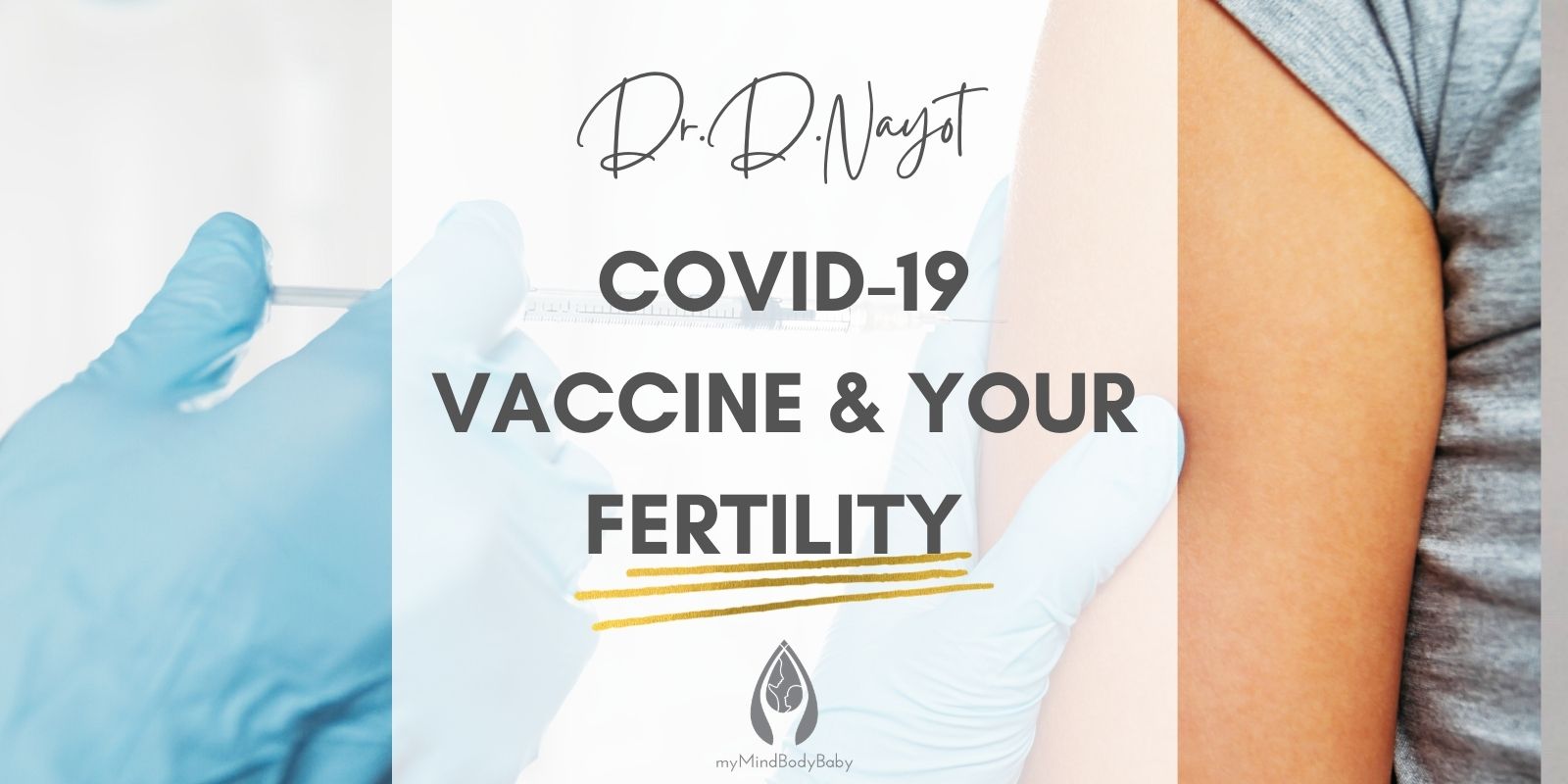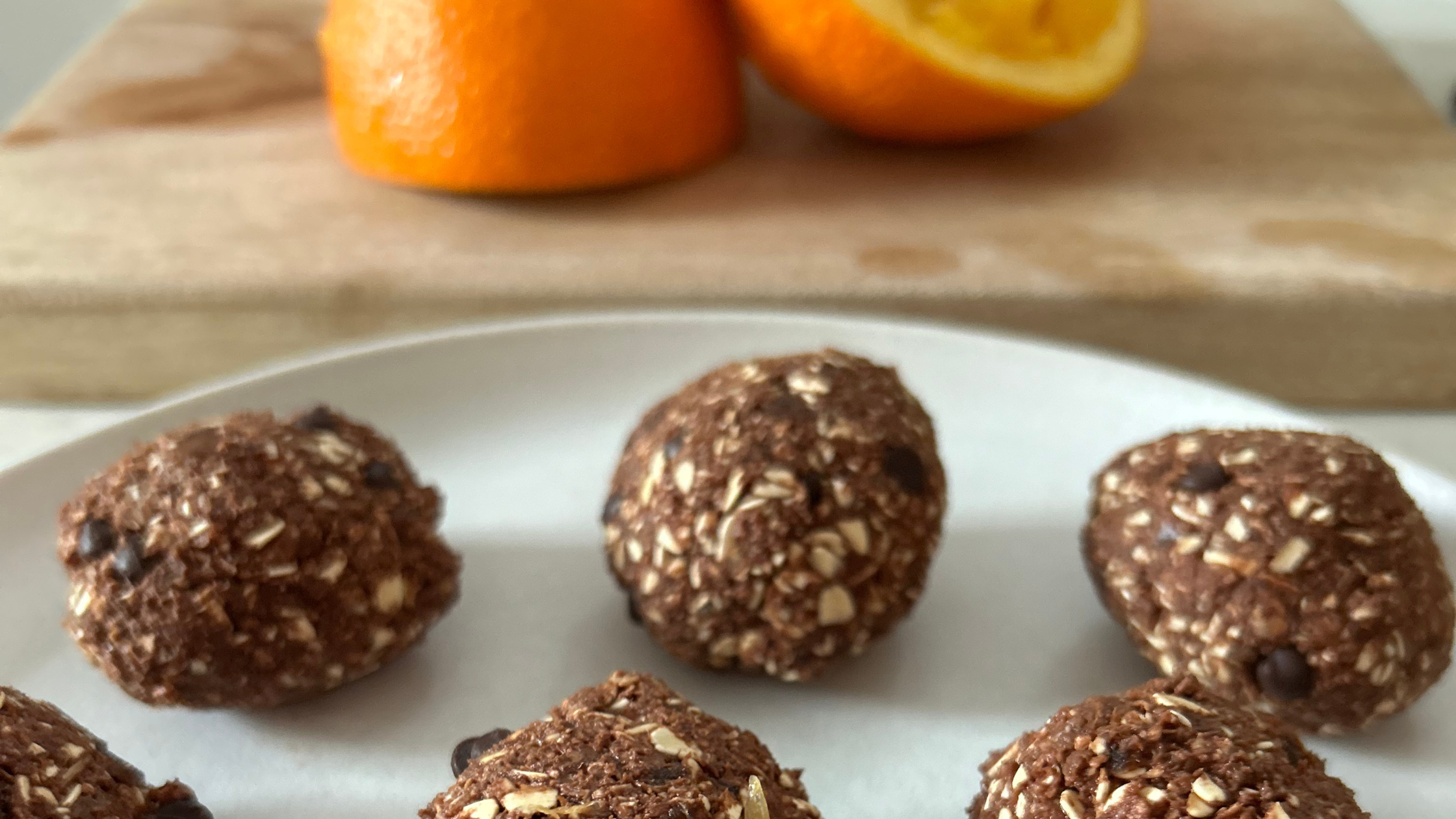“Covid-19 Vaccine & Your Fertility” | myMindBodyBaby
With the state of our global health crisis and as vaccines start becoming more readily available to women in their reproductive years, more and more questions are emerging about the impact vaccines may have on female fertility, women undergoing fertility treatments, and pregnant and breastfeeding women.
To help make sense of the data and answer questions, Dr. Dan Nayot from The Reproductive Centre (RCC) in Mississauga, Ontario, joined us for a chat. He noted that these answers are based on his own medical professional opinion based on the research and data currently available as of May 4th, 2021. Here are his answers to questions that were submitted.
Overview of Vaccines Types:
- mRNA. This is a new technology. This vaccine doesn’t go into the DNA in our body and so there isn’t a worry it is interacting with our genes. According to the CDC, “mRNA vaccines are a new type of vaccine to protect against infectious diseases. mRNA vaccines teach our cells how to make a protein—or even just a piece of a protein—that triggers an immune response inside our bodies.”
- Viral Vector. “Viral vector vaccines use a modified version of a different virus (the vector) to deliver important instructions to our cells. The benefit of viral vector vaccines, like all vaccines, is those vaccinated gain protection without ever having to risk the serious consequences of getting sick with COVID-19.”
Question #1. Can the vaccine impact a woman’s cycle in any way?
The clinical trials for these vaccines initially didn’t include pregnant women. In addition, during trials, the menstrual cycle wasn’t something researchers were focusing on. Instead, they were focusing on things like whether the vaccine decreased transmission or if there were any serious impacts to people from taking the vaccine. This was the main focus at the time so there is no hard data [on menstrual cycles] at this point.
Currently, there are online self-reporting sites where people can provide personal experiences with the vaccine. According to Dr. Nayot, there has been an “up-tick” in the number of self-reports of something going on with menstrual cycles in and around the time of the vaccine being administered. This data isn’t “clean” so from a fertility/OBGYN perspective, it’s suspected to be “short-term and self-limiting” meaning that if women experience a change in their cycle, they should only see a change in that current cycle – possibly due to an inflammatory or stress response. They don’t think it has long-term effects.
Question #2. Do we take any vaccine that is available to us? Which one is best while TTC?
What we know is that if you get COVID-19 it could be bad – there is a wide spectrum of symptoms and severity related to this virus. Pregnant women are considered a higher risk since we know that pregnant patients, especially in the 3rd trimester, are more likely to require ICU admission. Due to this, doctors are promoting vaccination, since the risk of getting COVID-19 is much higher than the theoretical risk of the vaccine.
Which vaccine is best for pregnancy?
Since the mRNA vaccine is newer, people seem to be more afraid of this new technology. However, experts are saying that it is probably more effective and it is showing more reassuring results.
As of today, the American Colledge of Obstetrics and Gynecologists (ACOG) are suggesting that pregnant patients get the mRNA vaccine.
The Society of Obstetricians and Gynecologists of Canada (SOGC) – are recommending that pregnant women get any vaccine available to them.
The National Advisory Committee on Immunization (NACI) – has said that pregnant women should, if possible, opt for the mRNA vaccine.
Question #3. Specific to an IVF cycle, is there particular timing that women should be paying attention to?
At this time, there is no data to suggest vaccine impacts implantation or ovulation, or miscarriage rates – so the recommendation is to get a vaccine when one is offered to you.
Question #4. One study published showed a 13.9% pregnancy loss rate. What are your thoughts on how to move forward with this knowledge?
The first thing to consider is the baseline miscarriage rate compared to the rate listed in the study. Factors to consider are the ages of the women in the study – older women have a higher miscarriage rate. Did the participants in the study have any co-morbidities that placed them in a special risk category and therefore were suggested to have the vaccine early on? At this point, based on the research, doctors aren’t seeing a big difference from the control group. Therefore, doctors are reassured with this data that pregnancy loss rates are not higher for this demographic.
Question #5. What considerations should you take into consideration when deciding on the vaccine?
At this point, unless directed by your physician, the recommendation is to get the vaccine. There is a chance that new information could come out in the future since this is a moving target.
Question #6. Are there any fertility meds that could be impacted by the vaccine?
So far there are no known contraindications to any fertility medications.
Question #7. During an IVF cycle, are there any concerns with taking the vaccine?
There isn’t any solid data on the intracycle effect from the vaccine because there is only self-reporting data as of right now. With that said, doctors are paying attention to this particular concern, but so far they think the COVID-19 vaccine has a benign or very minor effect on the particular cycle the vaccine is administered in.
Question #8. Is it safe to get the vaccine before embryo transfer?
Unfortunately, this has not been studied yet, so there is no evidence to support either outcome. Dr. Nayot doesn’t see the theoretical mechanism of what the harm would be and thinks the benefit of the vaccine outweighs the unknowns at this point.
Disclaimer from Dr. D. Nayot. Everything is his opinion and doesn’t represent any organizations. He isn’t an infections disease specialist. Vaccine data is a moving target and is always changing and this talk represents today’s guidelines as they currently stand.




